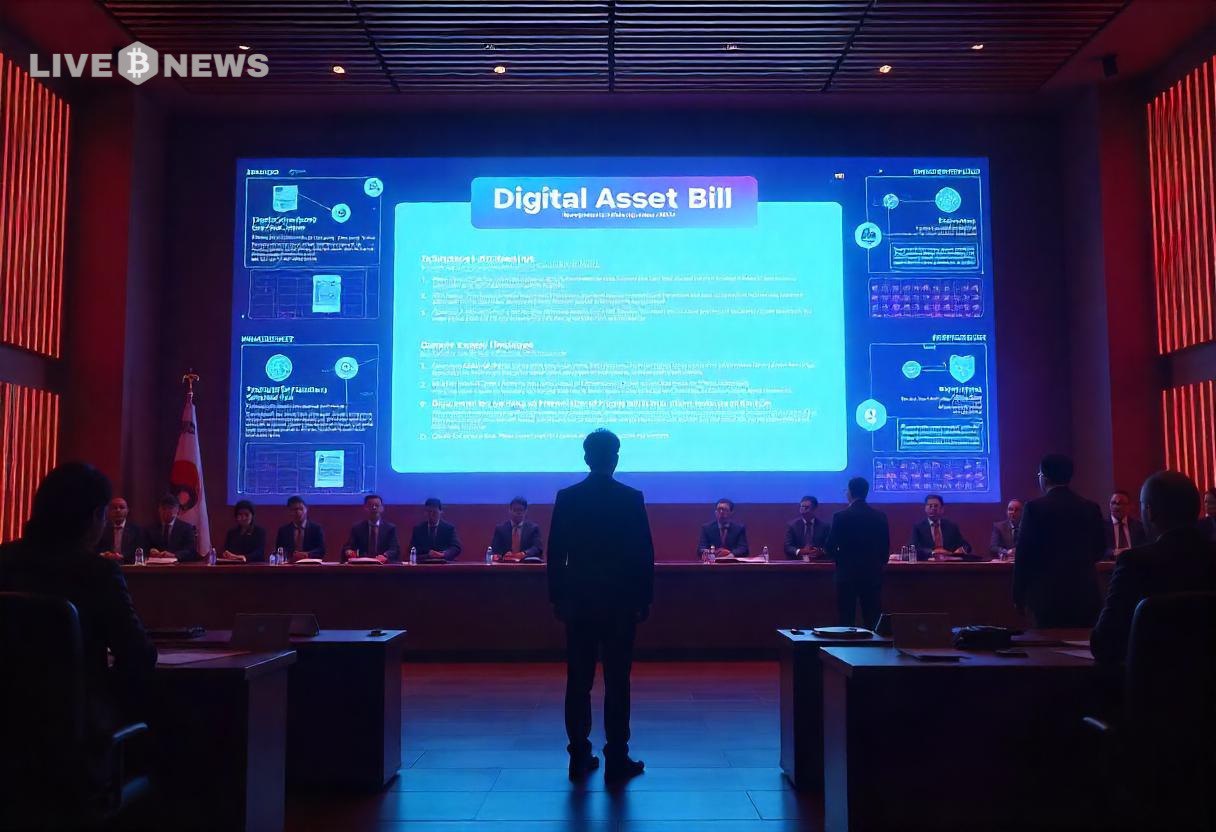- Stablecoins are codified into law in South Korea under the Digital Asset Basic Act.
- Local enterprises require 500M won to produce reserve-backed stablecoins.
- The measure prohibits unfair crypto trading and improves monitoring.
In an effort to control the rapidly expanding cryptocurrency sector in South Korea, the Digital Asset Basic Act was proposed to the National Assembly on June 10, 2025. It would also legalize stablecoin issuance, strengthen crypto firms’ oversight, and stop unfair trading practices. The president’s promise to strengthen the nation’s digital asset industry was made two weeks ago, and this measure follows suit.
Stablecoin Issuance Legalized
The new bill also allows local companies with capital of at least 500 million won ($368,000) to issue stablecoins, with reserves. Because of this, enterprises will find it simpler to join the stablecoin market, since the capital requirement has been reduced from 5 billion won. Through the legislation, a system of licensing is also set out to ensure compliance and transparency.
The Korean won is one of those assets to which the stablecoins are pegged in order to stabilize the volatile crypto market. The government is trying to curb outflows of capital by developing the domestic stablecoin ecosystem. President Lee has said that preserving South Korea’s financial system is critical for the preservation of national wealth.
Stricter Crypto Regulations Enforced
The Digital Asset Basic Act contains the rules that the crypto companies will have to follow. Besides, it forbids the use of unfair trading practices and mandates the establishment of a presidential committee whose role is to oversee digital assets policies. The law will be implemented with the guidance of this committee, which will also guarantee regulatory clarity.
Crypto firms face heightened scrutiny under the new framework. Moreover, the bill requires transparency in the operations of production houses and entails penalties for violation of the norms. It fits with South Korea’s aim to shield investors in one of the world’s hottest crypto markets but also to support innovation.
Besides, the legislation also contributes to the Virtual Asset User Protection Act of 2023, which targets fraudulent trading. These protections are expanded under the new act to fill in the gaps of the old regulatory framework.
Economic and Global Implications
The crypto market in South Korea is one of the largest in the world, and it has very strong retail and institutional participation. The bill’s stated goal is to incorporate digital assets into monetary systems. The government hopes that promoting won-based stablecoins will allow the use of stablecoins in Southeast Asia as the cultural exports of South Korea, including K-pop, are well known across the region.
An anticipated result of the reduced capital requirements for stablecoin issuers is more actors at the table, bigger competition, and more innovation across the market. However, investors remain cautiously hopeful despite the Terra stablecoin’s fall. The approval system the government has is to minimize the risk of such failures.
South Korea’s action fits into a global trend of other jurisdictions, such as Hong Kong, that have also recently passed their stablecoin legislation. This trend shows the increasing acceptance of stablecoins as something that can link traditional finance and cryptocurrencies.
It also backs other crypto initiatives, for example, tokenized securities in the form of real estate or art. These measures are being pushed by President Lee’s administration to be passed with bipartisan support, showing a pro-crypto stance.
Challenges and Future Outlook
There are challenges to working out a Digital Asset Basic Act, such as public skepticism because of previous crypto scandals. The Terra collapse is a reminder to investors that oversight is not tight enough. The hope is that the new approval system for stablecoins will restore confidence by making sure that the issuer maintains enough reserves.
The presidential Commission will have a key role in balancing innovation with investor protection. Min Byoung Dugg, who is leading the Digital Asset Committee, said that growth should be driven by private sector innovation, while regulations offer a firm basis.
Other nations could see how South Korea’s crypto reforms go and implement it. Digital assets may find their way into the mainstream financial system on the back of the bill’s focus on transparency and investor safeguards, which may serve to attract institutional investors.
The bill’s passage could speed up South Korea’s climb as a global crypto hub as the National Assembly debates the bill.a
